How I got my book published
An interview with author, James J. Garber
James recently acquired a publisher using firstwriter.com's database of publishers. We asked him about his writing, and how he found success.
fw: Thank you for taking the time to talk to us, James. Could you tell us a little about the book you recently placed with a publisher?
JJG: The book is called Problem Gods: In Search of a Meaningful Deity. It is about the concept of God, past and present, that offers a new definition or view of God based on modern science including astronomy, relativity and quantum theory. It analyses why our view of God is outdated and needs updating. Our current level of understanding of the Universe, including us humans, demands that we revise our divine vision.
fw: What made you feel like this was a book that you needed to write?
JJG: Being raised in a Catholic home with a Jewish father, with sixteen years of religious schooling plus a masters in theology and astronomy has led to this expanded vision of God – a God that is more rational and logical yet more mysterious and awe inspiring. Most of my material came out of my astronomy and theology studies plus a lot of reading. Writing nonfiction one needs to know the current literature. It’s okay to have one's views (biases) on a topic but you need to present the other views out there in a fair manner as well.
fw: Have you published anything else previously?
JJG: I have another published nonfiction book (2008).
fw: Do you think that previous track record helped you place this book? Was it with the same publisher?
JJG: I don’t think it made a great difference. I’m an independent scholar without standing in the theological community and the book had to sell on its own merits. My prior publisher didn’t accept this current book because it’s not on their "list". This is the word they use when rejecting a book.
fw: When your first publisher passed on the book, did you think about trying to get an agent to represent it for you?
JJG: I never sought an agent. Both books were strictly through firstwriter.com. It’s a numbers game. I went through all nonfiction, religious, "liberal" religious publishers. I sent submissions to about 80+ publishers. This included a cover letter, my curriculum vitae and three chapters. Four publishers asked to read the full MS. One accepted it for publication. Last time two accepted the book (it was on ancient and medieval medicine).
fw: Did you try any other methods for placing your book, besides firstwriter.com?
JJG: I only looked at firstwriter.com, though I did consider self-publication as a backup.
fw: And what do you think made firstwriter.com effective for you?
JJG: firstwriter.com provides a lot of publishers to consider and I could tell whether they might look at a liberal theological topic.
fw: And once you'd found suitable publishers to approach, did you send out lots of copies of your manuscript or take another approach?
JJG: No, I didn’t send out any MS unless they requested one. Lots of letters with CV, three chapters either by mail or email, depending on what they wanted. Lots of rejections from the best publishers in the United States!
fw: How long did you spend sending out queries?
JJG: It took about three months.
fw: And how did you deal with the rejections?
JJG: I smiled a lot and filed all the Harvard’s, Princeton’s and MIT’s. After all, how many people have Harvard letterheads in their files? Most sent pleasant responses. Two sent some very encouraging letters.
fw: Which publisher accepted your book in the end?
JJG: My first was Transaction Publishing and currently it is Bauu Institute and Press.
fw: What do you think was the key to securing that deal?
JJG: The approach to the topic I used in both books was unique. I was very careful about grammar and writing style and my wife and I edited the MS ad nauseum.
fw: How are you finding things now the book has been sold?
JJG: It’s fun. I like marketing, book signings etc. They tamper very little and what they’ve done has been good.
fw: What advice would you give to writers still searching for a publisher?
JJG: Work hard at the book, do a good job on it. Get advice from friends and don’t get discouraged. And if you don’t find a publisher consider self-publishing. I have a friend who self- published initially and now has four additional books in print by bone fide publishers.
fw: So what are your plans for the future?
JJG: The book is out as of February 1st. I’m marketing as best I can and have two more books in the works. I don’t publish in order to make money. I do it because it’s gratifying!
fw: Thank you for your time, James, and best of luck with all your books!
How I got my book publishedAn interview with author, James J. Garber
James J. Garber recently acquired a publisher using firstwriter.com's database of publishers. We asked him about his writing, and how he found success.
fw: Thank you for taking the time to talk to us, James. Could you tell us a little about the book you recently placed with a publisher?
JJG: The book is called Problem Gods: In Search of a Meaningful Deity. It is about the concept of God, past and present, that offers a new definition or view of God based on modern science including astronomy, relativity and quantum theory. It analyses why our view of God is outdated and needs updating. Our current level of understanding of the Universe, including us humans, demands that we revise our divine vision.
International Copyright Registration Register your copyright online for instant copyright protection in more than 160 different countries worldwide. Click here for more information.
fw: What made you feel like this was a book that you needed to write?
JJG: Being raised in a Catholic home with a Jewish father, with sixteen years of religious schooling plus a masters in theology and astronomy has led to this expanded vision of God – a God that is more rational and logical yet more mysterious and awe inspiring. Most of my material came out of my astronomy and theology studies plus a lot of reading. Writing nonfiction one needs to know the current literature. It’s okay to have one's views (biases) on a topic but you need to present the other views out there in a fair manner as well.
fw: Have you published anything else previously?
JJG: I have another published nonfiction book (2008).
fw: Do you think that previous track record helped you place this book? Was it with the same publisher?
JJG: I don’t think it made a great difference. I’m an independent scholar without standing in the theological community and the book had to sell on its own merits. My prior publisher didn’t accept this current book because it’s not on their "list". This is the word they use when rejecting a book.
fw: When your first publisher passed on the book, did you think about trying to get an agent to represent it for you?
JJG: I never sought an agent. Both books were strictly through firstwriter.com. It’s a numbers game. I went through all nonfiction, religious, "liberal" religious publishers. I sent submissions to about 80+ publishers. This included a cover letter, my curriculum vitae and three chapters. Four publishers asked to read the full MS. One accepted it for publication. Last time two accepted the book (it was on ancient and medieval medicine).
fw: Did you try any other methods for placing your book, besides firstwriter.com?
JJG: I only looked at firstwriter.com, though I did consider self-publication as a backup.
fw: And what do you think made firstwriter.com effective for you?
JJG: firstwriter.com provides a lot of publishers to consider and I could tell whether they might look at a liberal theological topic.
fw: And once you'd found suitable publishers to approach, did you send out lots of copies of your manuscript or take another approach?
JJG: No, I didn’t send out any MS unless they requested one. Lots of letters with CV, three chapters either by mail or email, depending on what they wanted. Lots of rejections from the best publishers in the United States!
fw: How long did you spend sending out queries?
JJG: It took about three months.
fw: And how did you deal with the rejections?
JJG: I smiled a lot and filed all the Harvard’s, Princeton’s and MIT’s. After all, how many people have Harvard letterheads in their files? Most sent pleasant responses. Two sent some very encouraging letters.
fw: Which publisher accepted your book in the end?
JJG: My first was Transaction Publishing and currently it is Bauu Institute and Press.
fw: What do you think was the key to securing that deal?
JJG: The approach to the topic I used in both books was unique. I was very careful about grammar and writing style and my wife and I edited the MS ad nauseum.
fw: How are you finding things now the book has been sold?
JJG: It’s fun. I like marketing, book signings etc. They tamper very little and what they’ve done has been good.
fw: What advice would you give to writers still searching for a publisher?
JJG: Work hard at the book, do a good job on it. Get advice from friends and don’t get discouraged. And if you don’t find a publisher consider self-publishing. I have a friend who self- published initially and now has four additional books in print by bone fide publishers.
fw: So what are your plans for the future?
JJG: The book is out as of February 1st. I’m marketing as best I can and have two more books in the works. I don’t publish in order to make money. I do it because it’s gratifying!
fw: Thank you for your time, James, and best of luck with all your books!
New social network for poetry
OpenMicVoices.com is a new social network for poets and people who enjoy poetry. OpenMicVoices.com welcomes all levels of poets to join. Users can create profiles that showcase their talent and produce an online presence for their works. Add photos, audio, and video, as well as, utilise a free, instant, live video chatroom, where you can socialise with your favourite members.
The site intends to spotlight poets worldwide, providing them with a more meaningful and profound experience, not found in online poetry groups or forums. Joining OpenMicVoices.com is quick and easy, with the ability to sign in using your username and password from any of the following sites:
Facebook ; Twitter ; Google ; Yahoo ; MySpace ; Linked iN ; Windows Live ID ; Open ID ; FLiCKR ; Blogger ; WordPress ; AOL.
OpenMicVoices.com is absolutely free for you to enjoy. Users are given a free blog, and assistance with monetising your work with advertising from such services as Google Adsense. You also get a free store, with free ads! Buy, sell, trade or donate, in your store.
To visit the website, click here
New website for urban fantasy fiction
A new webzine for fans of the urban fantasy genre, called Urban Fantasist, has just been launched by sf&f author Charles Christian and carries news, interviews, book reviews and blog postings about urban fantasy writing, art and photography.
One of the regular features will be a new flash fiction story published every Friday fortnight selected from submissions to the zine. Called TFi Flash Fortnightly, pieces must be no more than 1,000 words on an urban fantasy, genre-type theme (see http://www.urbanfantasist.com/ for more details).
Another regular column is Eleven Questions, an offbeat interview with an urban fantasy or sci fi personality answering questions such as their preferred time travel destinations and the mechanics of their craft. Jonathan Pinnock is the first "victim" revealing all.
Charles Christian, founder of the zine, also founded the successful Ink Sweat & Tears poetry webzine, and his first collection of dystopian science fiction and urban fantasy short stories This is the Quickest Way Down was published by Salt/Proxima Books at the end of 2011. He is a barrister and Reuters correspondent turned legal journalist, newsletter editor, keynote speaker, blogger, legal IT branding and marketingconsultant, sometime poet, photographer and urban fantasy/science fiction writer.
For more information contact charles@charles-christian.com or visit http://www.urbanfantasist.com/
Travel writing: take that extra step and go beyond simply documenting your many adventures
By Marcella Simmons
In this new age of laptops, digital cameras and other gizmos, the tools of travel writing have changed markedly – but the challenge remains the same: to present a real to life and vivid documentary of the things you saw, heard and did while on vacation or while just travelling through some town or spot in the woods. It is your view or your reaction to the surroundings around you. When putting it all together for a travel article, it's up to you to bring your readers into the picture and let them feel your reaction as if they were right there beside you. That's why it is so important to go beyond simply documenting your travels. Live them, feel them, and let your readers feel your reaction through your words.
The next time you are going out on an assignment or just going for a weekend getaway, don't forget the digital camera, an ample supply of rechargeable batteries, extra memory cards for picture taking and a purse full of ink pens and purse-size spiral notebooks for note-taking.
When you're actually where you want to be, and start taking photos, write down everything – write down your reaction to the old lady in the window who looked like a witch and kept staring at you as you walked toward the restaurant. Who was she? Why did she look at you as if she had seen a ghost? Why did she look startled when your eyes met hers?
Be observant of your surroundings – and the people you encounter. Write down anything that might be of importance to your upcoming story – don't trust anything to memory. Too much information is way better than not having enough.
Visit local tourist centres and request brochures and travel guides. Take notes in the margins of these brochures when someone emphasises "word-of-mouth" information that's not included in the brochure. Don't be afraid to ask questions about the locals. Find out if there is any history in the area that is noteworthy for a destination travel article. Suppose Jesse James stayed at the historic hotel across the street and they had a room full of memorabilia – his boots, gun and gun belt – other things he may have left behind. There's one angle for your travel story – but dig deeper – what if that hotel is said to be haunted by someone other than Jesse James? Jesse James isn't really enough to get people to travel this far in nowhere country to a small run down hotel simply to see a small room half full of Jesse James memorabilia. You have to dig deeper and find something your readers can get excited about.
Request a room – stay there – hear the creaks and things that go bump in the night – listen for the ghost that haunts the hallway late into the night – did you see anything? Did the hair stand up on your neck when the cold draft of wind from nowhere hurled by you as you were standing in the hall?
Write down the things you saw and heard. How did you feel? Let your readers feel the fear you felt as you were alone on the upper floor of that haunted hotel. Where was everyone else? Why were you all alone? Was it really haunted? Or was it just your imagination from the stories you had heard? Write it and let your readers help you decide whether the haunting was real or not. Did anyone else hear the noises you heard? Who's shadow was it that crept by your doorway just before you shut the door? Who was crying in the hallway after you went in and locked the door? When you opened the door the sound stopped – there was no-one there.
What about that blurred image that kept showing up in some of the photos you took? What was it? Who was it? You didn't see anyone when you were shooting. Creepy, huh?
Write them an article that will entice them to come to that particular place – an old run down hotel with a creepy past ninety miles from nowhere – let them feel your excitement and fear as you crawled back into bed – don't only tell them about the noises you heard coming from the hall late in the night – let them hear the fear as you write especially when you heard the woman scream out in the room next door and you were too afraid to climb out of bed to go see.
It may scare the heck out of some people and they may never want to visit the haunted hotel, but chances are that your story will draw quite a lot of people to that little hotel located in nowhere country just to see for themselves if it were haunted or not. That's what your travel article must do – go beyond documenting the things you learned, the things you saw or heard – your readers must feel the same excitement you do about a place or all the documenting in the world will never lure them to this place – especially if it's ninety miles from nowhere!
In essence, you must present a travel story that goes beyond documentation – it must have real feelings that awe the reader and make them want to visit the place of interest. Leave the dull documentation to the travel brochures and the like. Bring out the realness and the life of a place and people will be drawn to visit time and time again.
About the authorMarcella Simmons has more than 650 published credits in hundreds of publications including several local newspapers and she is currently working on three romance/suspense novels and a reference guide for writers, while maintaining several travel websites.
See World of Travel Writers. Writers are encouraged to submit travel articles on the subject of travel writing to Ms Simmons at marcies04@bellsouth.net.
Resources for writers at firstwriter.com
Visit firstwriter.com for the following invaluable resources for writers:
over 850 literary agencies
over 1,300 book publishers
over 150 writing contests
over 1,500 magazine publishers
and more...
skip to main |
skip to sidebar

SOLD OUT!!!

The Place to go




Our 2017 anthology






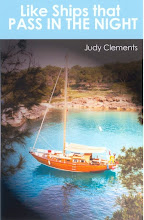

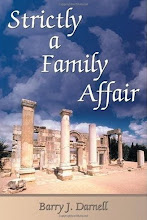



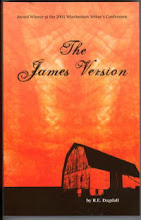










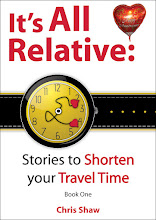




Morag Clarke
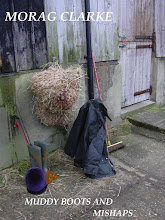
Morag Clarke

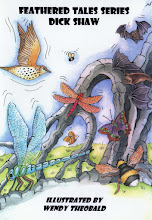
One of a set by Dick Bradshaw



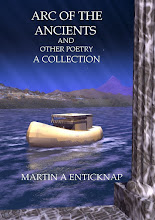
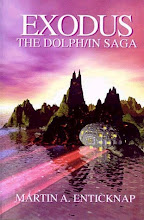





Published online


Keep Scribbling!
Pages
- Home
- About Felixstowe Scribblers
- 2021 Programme of meetings.
- Links
- The Bill Budner Trophy
- The Jack Wilkinson Memorial Trophy
- Bill Budner - Roll of Honour
- Jack Wilkinson - Roll of Honour
- Mairead Reidy Roll of Honour
- 2019 Writeathon Part One
- 2019 Writeathon Part Two
- Archived Writeathon.
- The Lost Sock
- 2019 AGM Minutes.
- MANIC/MICRO MONDAY WhatsApp Group.
- NEXT MEETING
Formed over forty years ago, our Writers Circle is based in Felixstowe, Suffolk. Meetings are held in The Room at the Top in Felixstowe Library, normally on the first and third Tuesday of each month commencing at 7.30pm and finishing by 10.00pm. Check this weblog for details of meetings.
There is an annual November to November fee of £30, April to November is £20 and June to November £15. For members preferring to pay at each meeting the charge is £5 per meeting. To contact Felixstowe Scribblers simply email scribblers.1@btinternet.com or the Secretary, catherine.stafford1@ntlworld.com
REPOSITORY
The Jack Wilkinson Competition for stories about children for an adult reader, is open for entries until 1st June. Stories should be emailed in the usual way to Georgina, making clear that it is a competition entry. Your entries can be in any genre of writing and should be no more than a maximum of 1,500words.
Once all entries have been received, they will all be posted on the Repository. Members will have a week to read and choose their favourite three stories. Please do not vote for your own story. Your top three choices should be emailed to Georgina stating 1st, 2nd, 3rd and the corresponding story titles.
Please don’t make any comments below the stories until the outcome has been announced.
All stories will be published anonymously, with only a story title and a corresponding letter of the alphabet. Once all votes are in (and scores have been double checked) the winning entries will be announced.
As we are unable to present the trophy due to the existing situation, an e-certificate will be awarded to the winner.
The more entries, the better, so get those scribbling sticks out!
Please email all contributions to Georgina
Dave
CORONAVIRUS
Due to the outbreak of Coronavirus, Felixstowe Scribblers have sadly cancelled all future meetings until such time as Government advice and restrictions are lifted.
This means a great upheaval to many of our writers, but we will do our best to keep you updated both on this weblog and by email.
We intend to maintain our writing with 500-750 word assignments that may be posted on here for a short period of time whilst our WhatsApp group will have regular 100-200 word exercises to help keep our creative minds working.
Further information will be released as soon as possible.
30 March 2020
This means a great upheaval to many of our writers, but we will do our best to keep you updated both on this weblog and by email.
We intend to maintain our writing with 500-750 word assignments that may be posted on here for a short period of time whilst our WhatsApp group will have regular 100-200 word exercises to help keep our creative minds working.
Further information will be released as soon as possible.
30 March 2020
Characters.

SOLD OUT!!!
Search This Blog
Gipping Press
Felixstowe Scribblers chose Gipping Press to publish their 2014, 2017 and 2019 anthologies. Our reasoning was based on their enthusiastic help, great track record and, more than anything else, the quality and high standard of their work. Our anthologies are testament to their expertise.
We anticipate another anthology in 2021 and will be seeking the help once again, of Gipping Press.
We can honestly recommend Gipping Press to anyone seeking advice in publication and for their very competitive prices.
Thank you Gipping Press.
http://www.gippingpress.co.uk/GPselfpublshing.html
We anticipate another anthology in 2021 and will be seeking the help once again, of Gipping Press.
We can honestly recommend Gipping Press to anyone seeking advice in publication and for their very competitive prices.
Thank you Gipping Press.
http://www.gippingpress.co.uk/GPselfpublshing.html
Mr Cobbler

The Place to go
ASF Fitness...

Writing Competions
Find an Agent
Felixstowe Scribblers

Disclaimer
Felixstowe Scribblers are always pleased to publish details of competitions and associated information on all manner of subjects appertaining to writing and publication. We do not, however, guarantee the authenticity of any services or offers made and recommend that readers check and research company credentials before making any financial outlay. Our best advice is: "When in doubt - don't!"
Where we meet
Felixstowe Scribblers meet on the first and third Tuesday of each month in The Room at the Top in Felixstowe Library, Crescent Road. Meetings start at 7.30pm and end at 10.00pm.
Details of the library are on their website at https://www.suffolklibraries.co.uk/libraries/felixstowe-library/.
Felixstowe Scribblers are indebted to the Library and its helpful staff for all their valuable assistance.
Due to the current Coronavirus pandemic, our annual membership fees have been reduced from £30 to £15 for the coming year until November 2021.
Details of the library are on their website at https://www.suffolklibraries.co.uk/libraries/felixstowe-library/.
Felixstowe Scribblers are indebted to the Library and its helpful staff for all their valuable assistance.
Due to the current Coronavirus pandemic, our annual membership fees have been reduced from £30 to £15 for the coming year until November 2021.
Meetings, when they are able to be organised again will allow people preferring to pay at each meeting a charge of £5.
Our writing programmes are available via our two avenues, The Repository and our WhatsApp group.
Membership is open to both published and hobby writers and whilst there are no age limits it is wise to be aware that there may be adult content included in some work.
For more information about Felixstowe Scribblers simply email our Secretary catherine.stafford1@ntlworld.com or our Chairman, Dave, at scribblers.1@btinternet.com.
For more information about Felixstowe Scribblers simply email our Secretary catherine.stafford1@ntlworld.com or our Chairman, Dave, at scribblers.1@btinternet.com.
Committee Members:
Hon President: Ruth Dugdall.
Chairman: Dave Feakes.
Secretary: Cathy Stafford.
Treasurer: Beryl Sabel.
Scribblers Repository Editor: Georgina Salmon.
Weblog Co-ordinator: to be arranged.
Anthology sub committee:
Beryl Sabel,
Georgina Salmon,
Dave Feakes.
WhatsApp administrator:
Justin Keogh
In Memory
Martin Enticknap One time member of the Scribblers who stayed in touch from his home on Sanday in the Orklands. 2003.
Nobby Clarke A keen sailor, he relayed many amusing tales from his past life. Died tragically in a road traffic accident in 2004.
Bill Budner A lay preacher who joined the Scribblers and provided so many prolific words in his short stories. 2006.
Jack Wilkinson Our youngest member for four years, he provided so much laughter and talented creativity before losing his life to cancer at the tender age of twelve. 2006.
Allen Williams Our Welsh wizard had a wonderful wit that kept the group in fits of laughter. 2007.
John Crowson At 97, our most senior member. He passed just a week before he was published for the very first time in the 2010 Felixstowe Scribblers Anthology. 2009.
Doreen Rayner Published and very knowledgeable Felixstowe historian and former member of the Scribblers. 2012
Les Smith Such a welcoming and endearing character, his laughter, matched with his personality and his humorous writing leaves the Scribblers much poorer for his loss. 2015
It is fitting that we also remember Liam Fairhurst of Soham who died of cancer in 2009. He raised enormous sums of money for charity all beginning in memory of his friend and ours, Jack Wilkinson.
Maurice James, the creator of the Coast to Coast competitions and a great friend to the Scribblers. 2010
Nobby Clarke A keen sailor, he relayed many amusing tales from his past life. Died tragically in a road traffic accident in 2004.
Bill Budner A lay preacher who joined the Scribblers and provided so many prolific words in his short stories. 2006.
Jack Wilkinson Our youngest member for four years, he provided so much laughter and talented creativity before losing his life to cancer at the tender age of twelve. 2006.
Allen Williams Our Welsh wizard had a wonderful wit that kept the group in fits of laughter. 2007.
John Crowson At 97, our most senior member. He passed just a week before he was published for the very first time in the 2010 Felixstowe Scribblers Anthology. 2009.
Doreen Rayner Published and very knowledgeable Felixstowe historian and former member of the Scribblers. 2012
Les Smith Such a welcoming and endearing character, his laughter, matched with his personality and his humorous writing leaves the Scribblers much poorer for his loss. 2015
Mairead Reidy Such a warm hearted and generous person who was both extremely talented and knowledgeable. Liked and loved by all. Another very sad loss to our creative group. 2018
Dick Bradshaw A warm and friendly long term member. A wonderful and published writer with a wealth of knowledge and so many humorous tales. A very sad loss of a good friend. 2018
It is fitting that we also remember Liam Fairhurst of Soham who died of cancer in 2009. He raised enormous sums of money for charity all beginning in memory of his friend and ours, Jack Wilkinson.
Maurice James, the creator of the Coast to Coast competitions and a great friend to the Scribblers. 2010
Our Shop Window

Words

Our 2017 anthology
Dave Feakes

Tony Shearman

Beryl Sabel

Debbie Sutton aka Abigail Summer

Angela Petch

Angela Petch

Judy Clements

Barry Darnell

Barry Darnell

Sandy Stafford

Angela Lewis

Ray Foster is Jack Giles

Ruth Dugdall

Ruth Dugdall

Ruth Dugdall

Ruth Dugdall

Ruth Dugdall

jeanette hewitt

jeanette hewitt

Jeanette Hewitt

Steve Barnes

Annie Thompson

Annie Thompson

Chris Shaw

Chris Shaw

Chris Shaw

Chris Shaw

Morag Clarke

Morag Clarke
Morag Clarke
Morag Clarke
Morag Clarke

The late Dick Bradshaw

One of a set by Dick Bradshaw
The late Dick Bradshaw

The late Les Smith

The late Jack Wilkinson

The late Martin Enticknap

The late Martin Enticknap

Rochelle Moore

Rochelle Moore
Geraldine Rose

Felixstowe Scribblers Anthology

Alison Aldridge

Published online
Barry T Martin e-books

Blog Archive
-
▼
2012
(234)
-
▼
February
(27)
- Thoughts
- CPI Antony Rowe Book Printing Services
- IP-ART FESTIVAL 2012 SHORT STORY PRIZE IS LAUNCHED
- firstwriter.com newsletter
- She’s The One writing competition
- Looking for submissions...
- LAST SIX DAYS FOR SUBMISSIONS
- Rubery Book Award
- Meeting report for 21st February
- Critique session
- Our next meeting...
- Paragraph Planet - February newsletter
- Stagefright
- FELIXSTOWE MIND BODY SOUL EXHIBITION
- Hey there Pen Tale Friends
- Cancer Research UK Relay For Life poetry competition
- Competitions...
- Happy Valentine's Day...
- On the run for 19 years
- Meeting report for 7th Feb 2012
- Theatre Royal Bury St Edmunds - exciting production
- The News
- Tonight's meeting is ON...
- Coming to the Leisure Centre soon...
- Grace Dieu Writers' Circle 2012 Writing Competition
- Prole Laureate Competition
- CREATIVE PRINT PUBLISHING LTD - FEBRUARY 2012 HIST...
-
▼
February
(27)
Caz’s Pet and House Sitting Service
Safely in my hands, whether for a fortnight or overnight.
Let me care for your pets in their own home,
giving you peace of mind while you’re away.
Reasonable rates.
Phone 01394-212259.
Email cazwilkinson2@hotmail.co.uk
References and testimonials available on request.
Our old weblog
Can be still be viewed at http://nar8or.blogspot.com/
It covers the period December 2004 to December 2009.
It covers the period December 2004 to December 2009.
Total Pageviews

Keep Scribbling!
